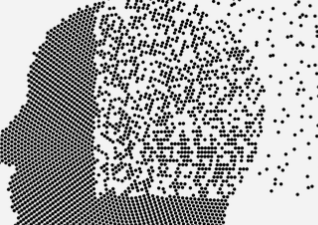As we age, our brain function may decline, resulting in memory loss and other cognitive issues. While many people assume these problems are a normal part of aging, they may be signs of dementia. Dementia is a neurological disorder that affects not just the elderly, but people of all ages. It is important to recognize the symptoms of dementia in order to get an early diagnosis and start treatment as soon as possible.
Symptoms of Dementia:
1. Memory Loss – One of the earliest signs of dementia is difficulty remembering names or objects. While many people associate this symptom with aging, it can also be a sign of early-stage dementia.
2. Difficulty Finding Words – Another sign of dementia is struggling to find the right words to express ideas. This symptom can be especially frustrating for those who are used to being articulate and articulate in conversation.
3. Lack of Focus – People with dementia may lose focus while performing everyday activities such as dressing, bathing, or cooking. They may struggle to complete tasks, find it hard to stay focused, and quickly tire of activities.
4. Confusion – People with dementia may become confused even in familiar surroundings. They may have difficulty recognizing their loved ones or understanding what they are saying.
5. Delusions – Dementia sometimes causes people to believe in things that are not true. They may become paranoid or misinterpret the actions of others.
Causes of Dementia:
1. Alzheimer’s Disease – Alzheimer’s disease is the most common cause of dementia. It affects the brain’s ability to retain and process information, leading to cognitive decline.
2. Alpha Synuclein – Another cause of dementia is the accumulation of clumps of a protein called alpha synuclein in the brain.
3. Reduced Blood Flow to the Brain – Dementia may also be caused by problems with blood flow to the brain, particularly in the case of vascular dementia.
4. Protein Buildup in the Brain – In some cases, dementia is caused by the buildup of abnormal proteins in the brain.
5. Corticobasal Degeneration – This is a rare form of dementia that is caused by the degeneration of the cortex.
Treatment Options for Dementia:
1. Attend Therapy – People with dementia may benefit from attending cognitive or behavioral therapy sessions. These sessions help patients learn coping techniques, preserve their remaining cognitive abilities, and increase their quality of life.
2. Take Medications Regularly – Some medications may help to slow the progression of dementia. It is important to take these medications as directed by a doctor.
3. Receive Support from Family – Family members can provide a great deal of support to loved ones with dementia. They can help with everyday tasks, monitor their medical care, and provide emotional support.
Dementia can have a profound impact on a person’s life, and recognizing the symptoms and seeking treatment is essential. If you or a loved one is experiencing symptoms such as memory loss, difficulty finding words, lack of focus, confusion, or delusions, it is important to seek medical attention as soon as possible. Early diagnosis of dementia can lead to improved outcomes and a better quality of life.




